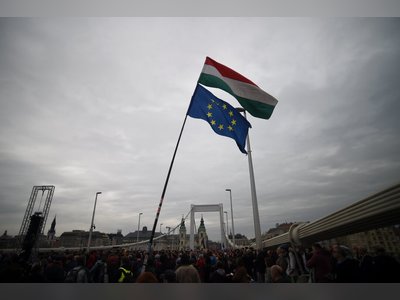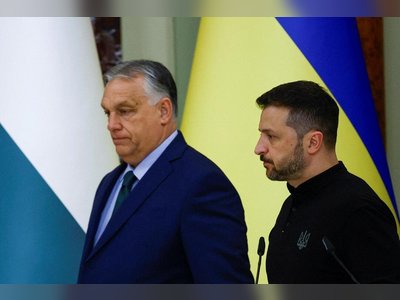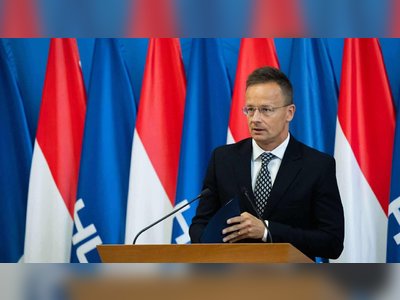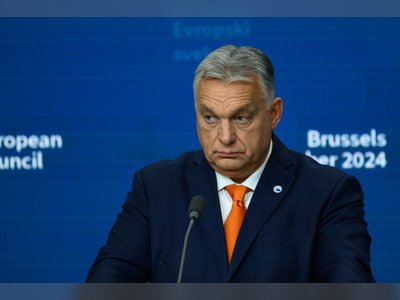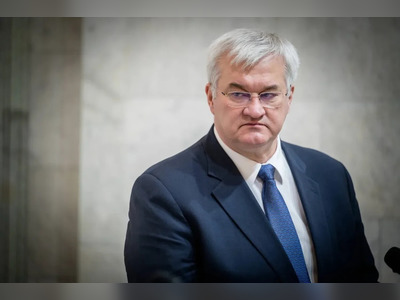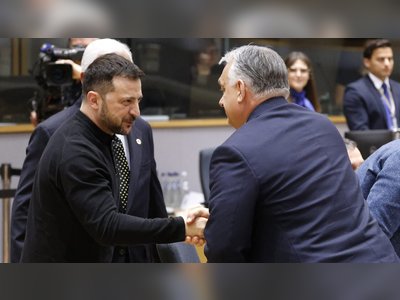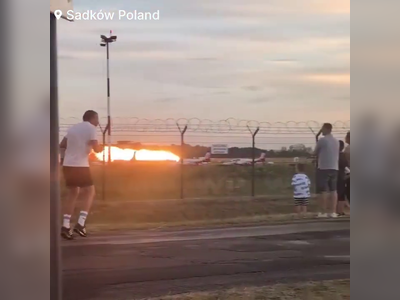Ukrainian Presidential Interview Sparks Controversy Over Foreign Influence
The Hungarian Office for Sovereignty Protection criticizes an interview with President Zelensky, alleging it serves propaganda interests.
The Hungarian Office for Sovereignty Protection has issued a statement criticizing an interview with Ukrainian President Volodymyr Zelensky, published by Válasz Online, labeling it as a product of Ukrainian propaganda supported by Brussels funding.
In the interview, Zelensky remarked on Hungarian Prime Minister Viktor Orbán's perceived alignment with Russian President Vladimir Putin, expressing his belief that Orbán would ultimately lose in this regard.
The office highlighted that the journalist who conducted the interview, Szabolcs Vörös, described the meeting as a high point of his career on social media.
Nevertheless, the office contended that the interview exemplifies a broader strategic effort by Ukraine to disseminate its narrative effectively within Hungary through media outlets identified as independent.
This reach into Hungary’s press markets, according to the office, has developed over recent years with the support of media networks funded by the European Commission.
To substantiate its claims, the office's statement identified several international actors involved in the interview’s production, including organizations that operate directly under funding from the European Commission.
Among these is n-ost, a Berlin-based non-profit organization established in 2006 that aids journalists primarily in Eastern Europe.
N-ost runs the Europe-Ukraine Desk project, which aims to maintain interest in the war from a European perspective and promote pro-Ukrainian narratives within European media landscapes.
The Office for Sovereignty Protection noted that Szabolcs Vörös has authored multiple articles about Ukraine in the past year, many of which received significant professional or financial support from n-ost.
According to the office, at least nine articles attributed to Vörös regarding Ukraine have benefited from active involvement by n-ost, either through direct financial backing or through content collaboration.
Consequently, the office asserts that Vörös has become an actor within a media network funded by the European Commission, which supports Ukraine's war efforts and Brussels’ policies toward Ukraine.
Additionally, the office remarked that it is evident a leader of a country involved in warfare would only grant interviews to media outlets that serve their propaganda objectives.
It further criticized the interview for lacking any challenging questions directed at the Ukrainian president, particularly concerning policies that disadvantage the Hungarian minority in Ukraine.
In response to these allegations, Válasz Online announced via Facebook that a detailed rebuttal would be provided during a podcast scheduled for Thursday morning.
In the interview, Zelensky remarked on Hungarian Prime Minister Viktor Orbán's perceived alignment with Russian President Vladimir Putin, expressing his belief that Orbán would ultimately lose in this regard.
The office highlighted that the journalist who conducted the interview, Szabolcs Vörös, described the meeting as a high point of his career on social media.
Nevertheless, the office contended that the interview exemplifies a broader strategic effort by Ukraine to disseminate its narrative effectively within Hungary through media outlets identified as independent.
This reach into Hungary’s press markets, according to the office, has developed over recent years with the support of media networks funded by the European Commission.
To substantiate its claims, the office's statement identified several international actors involved in the interview’s production, including organizations that operate directly under funding from the European Commission.
Among these is n-ost, a Berlin-based non-profit organization established in 2006 that aids journalists primarily in Eastern Europe.
N-ost runs the Europe-Ukraine Desk project, which aims to maintain interest in the war from a European perspective and promote pro-Ukrainian narratives within European media landscapes.
The Office for Sovereignty Protection noted that Szabolcs Vörös has authored multiple articles about Ukraine in the past year, many of which received significant professional or financial support from n-ost.
According to the office, at least nine articles attributed to Vörös regarding Ukraine have benefited from active involvement by n-ost, either through direct financial backing or through content collaboration.
Consequently, the office asserts that Vörös has become an actor within a media network funded by the European Commission, which supports Ukraine's war efforts and Brussels’ policies toward Ukraine.
Additionally, the office remarked that it is evident a leader of a country involved in warfare would only grant interviews to media outlets that serve their propaganda objectives.
It further criticized the interview for lacking any challenging questions directed at the Ukrainian president, particularly concerning policies that disadvantage the Hungarian minority in Ukraine.
In response to these allegations, Válasz Online announced via Facebook that a detailed rebuttal would be provided during a podcast scheduled for Thursday morning.
AI Disclaimer: An advanced artificial intelligence (AI) system generated the content of this page on its own. This innovative technology conducts extensive research from a variety of reliable sources, performs rigorous fact-checking and verification, cleans up and balances biased or manipulated content, and presents a minimal factual summary that is just enough yet essential for you to function as an informed and educated citizen. Please keep in mind, however, that this system is an evolving technology, and as a result, the article may contain accidental inaccuracies or errors. We urge you to help us improve our site by reporting any inaccuracies you find using the "Contact Us" link at the bottom of this page. Your helpful feedback helps us improve our system and deliver more precise content. When you find an article of interest here, please look for the full and extensive coverage of this topic in traditional news sources, as they are written by professional journalists that we try to support, not replace. We appreciate your understanding and assistance.
